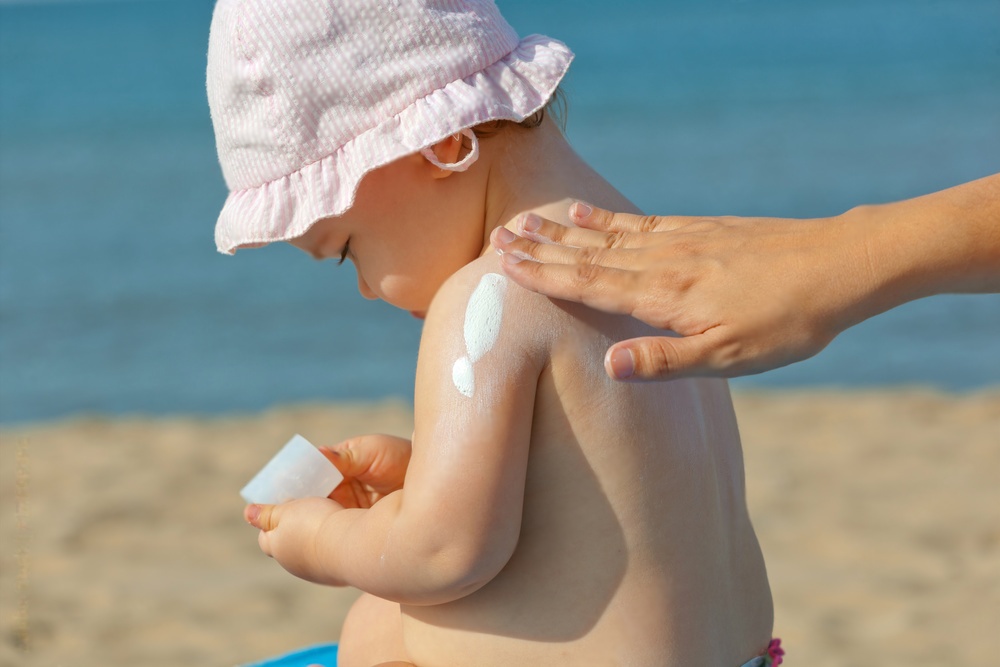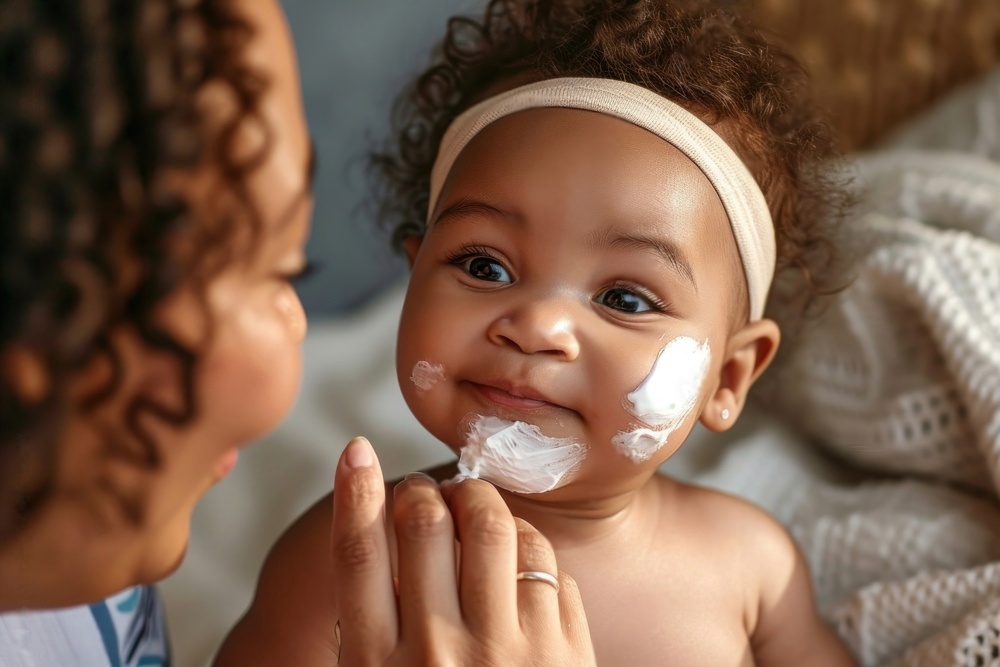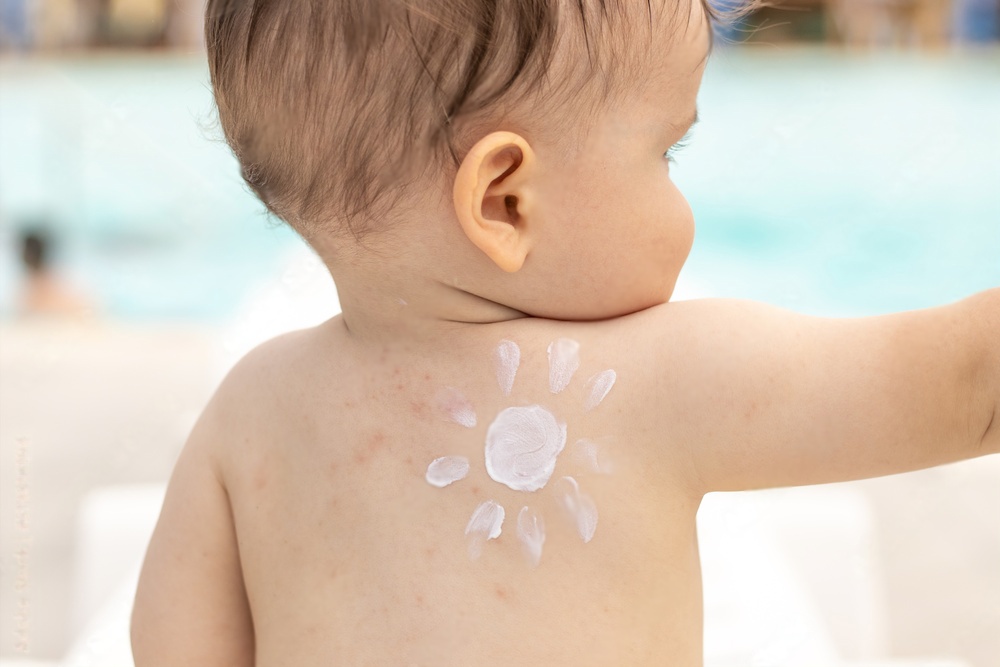The delicate skin of infants is highly susceptible to the harsh effects of the sun, making sun protection an essential part of caring for your baby. Choosing the right sunscreen—referred to as “gold standard sunscreen”—is crucial for safeguarding your baby’s sensitive skin during outdoor adventures. This article provides comprehensive guidance on the importance of protecting your baby’s skin, how to choose the best sunscreen, and tips for effective application.
Why Is Baby Skin So Sensitive?
Baby skin is much thinner and more sensitive than adult skin. It contains less melanin, the pigment that helps protect against ultraviolet (UV) radiation, making infants more vulnerable to sunburn and long-term skin damage. The skin barrier in babies is still developing, which means it can easily become irritated by environmental factors, including sun exposure.
Benefits of Gold Standard Sunscreen
Using gold standard sunscreen offers numerous advantages:
- Optimal Protection: High-quality sunscreens provide superior protection against both UVA and UVB rays, reducing the risk of sunburn and skin damage.
- Natural Ingredients: These sunscreens often contain natural and gentle ingredients, ensuring they are safe for sensitive baby skin.
- Easy Application: Gold standard sunscreens are typically formulated to be lightweight, non-greasy, and easy to apply, ensuring even coverage and comfort.
How to Choose the Best Sunscreen for Babies
Selecting the right sunscreen for your baby involves considering several key factors:
- SPF Rating: Choose a sunscreen with a Sun Protection Factor (SPF) of at least 30. SPF 30 blocks about 97% of UVB rays, providing adequate protection for your baby’s skin.
- Broad-Spectrum Protection: Ensure the sunscreen offers broad-spectrum protection, meaning it shields against both UVA and UVB rays.
- Hypoallergenic Formulas: Opt for products labeled as hypoallergenic and free from fragrances, parabens, and other harsh chemicals to minimize the risk of skin irritation.
- Physical (Mineral) Sunscreens: Prefer sunscreens with physical blockers like zinc oxide or titanium dioxide, which sit on the skin’s surface and reflect UV rays, rather than being absorbed into the skin.
Application Tips for Baby Sunscreen
- Apply Generously: Cover all exposed skin with a liberal amount of sunscreen, including the face, ears, neck, and hands.
- Timing: Apply sunscreen at least 15-30 minutes before sun exposure to allow it to form an effective protective layer.
- Reapplication: Reapply every two hours, or more frequently if your baby is swimming or sweating.
- Avoid Sensitive Areas: Be careful around the eyes and mouth, and avoid applying sunscreen to broken or irritated skin.
Protecting Baby Skin During Outdoor Activities
Regardless of the outdoor activity, protecting your baby’s skin should always be a priority. Here are some tips for different scenarios:
- Park Outings: Use a stroller with a sunshade, and dress your baby in lightweight, long-sleeved clothing for extra protection.
- Swimming: Choose water-resistant sunscreen and reapply immediately after swimming or towel drying.
- Beach Trips: Along with sunscreen, use wide-brimmed hats, sunglasses, and UV-protective clothing to shield your baby from direct sunlight.
The Importance of Sunscreen for Baby Skin
Applying sunscreen to your baby is not just a precaution; it’s a vital step in nurturing and protecting their delicate skin. Regular use of sunscreen helps prevent immediate sunburn and reduces the risk of long-term skin problems such as premature aging and skin cancer. By choosing and using the right sunscreen, you ensure your baby’s skin remains healthy and well-protected during all their outdoor adventures.
Additional Tips for Baby Skin Protection
- Patch Test: Before using a new sunscreen, perform a patch test on a small area of your baby’s skin to check for any allergic reactions.
- Avoid Peak Sun Hours: Try to limit outdoor activities between 10 a.m. and 4 p.m., when the sun’s rays are strongest.
- Stay Hydrated: Ensure your baby stays hydrated by offering plenty of fluids, especially on hot days.
- Shade: Seek shade whenever possible to minimize direct sun exposure.
FAQs
What is gold standard sunscreen?
Gold standard sunscreen refers to high-quality sun protection products that offer effective and safe protection for sensitive skin, particularly that of babies and young children.
Why do babies need sunscreen?
Babies have more sensitive skin than adults, making them more prone to sunburn and skin damage from UV rays. Sunscreen helps protect their delicate skin from harmful sun exposure.
How do I choose the best sunscreen for my baby?
Look for sunscreens with at least SPF 30, broad-spectrum protection, hypoallergenic formulas, and physical blockers like zinc oxide or titanium dioxide.
How often should I reapply sunscreen on my baby?
Reapply every two hours, or more frequently if your baby is swimming or sweating.
Can babies under 6 months use sunscreen?
It’s generally recommended to keep babies under 6 months out of direct sunlight. If necessary, consult your pediatrician before applying sunscreen to infants in this age group.
Is it safe to use adult sunscreen on babies?
No, adult sunscreens may contain ingredients that are too harsh for a baby’s sensitive skin. Always use a sunscreen specifically formulated for infants.
Conclusion
Caring for your baby’s fragile skin requires diligence and the right products. By choosing a gold standard sunscreen and applying it properly, you can ensure your baby’s skin stays protected and healthy during all your outdoor adventures. Remember, a well-protected baby is a happy baby, ready to explore the world safely under the sun.



